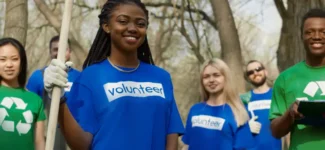Major gifts likely make up a large portion of your nonprofit organization’s fundraising revenue. In 2022, donations from major donors caused a 6.2% increase in dollars raised despite a 7% drop in donor acquisition and retention.
Fostering relationships with major donors and learning the art of asking for large gifts takes tact. Every step from the initial research to the donation ask requires careful planning and consideration from your staff. That’s why so many nonprofit organizations dedicate a single, skilled employee to strategize and take the lead with major gifts: the major gift officer.
Large nonprofit organizations often hire a major gifts officer to join the leadership team. However, smaller nonprofit organizations may opt to assign an existing staff member to take on the responsibilities of a major gift officer.
No matter how big or small your nonprofit organization is, the person in charge of the major giving strategy must wear many hats. The major gift officer should be skilled enough in a variety of fields to serve as your nonprofit organization’s:
- Advocate
- Researcher
- Storyteller
- Organizer
- Collaborator
With a resource as vital to your nonprofit organization’s success as major gifts, it’s important to make sure you have the best person in charge.
1. Advocate
Your major gift officer must be an advocate for your nonprofit organization. This staff member must live and breathe your purpose to do the best job they can.
This foundational trait will trickle down into every other aspect of the major gift officer position. After all, how can your team members convince someone else to become passionate about your nonprofit organization’s purpose if they’re not passionate about it themselves?
This person should not only be passionate in the midst of donation conversations but they should also be immediately recognized as an active part of your nonprofit organization’s advocate community. Therefore, make sure your major gift officer is involved with the engagement opportunities you host for your supporters. These include:
- The donor communications process. While major gift officers are heavily involved in communication with major prospects, you should also make sure their name is on other communication documents as well. This will establish a friendly name for donors to associate with your nonprofit organization in future stewardship.
- Stewardship events. Your major gift officer should attend as many stewardship events as possible and talk to supporters in a casual location. This will make them recognizable to donors and approachable for later conversations.
- Your website. Include your staff members on your nonprofit organization’s website so that donors can match a face with a name when they’re talking to representatives. This provides context for the donor and helps your nonprofit organization provide a personal touch.
While these may seem like small involvement opportunities, taking the additional steps to establish a rapport with donors will pay off in the end. When your nonprofit organization leans on your major gift officer for a large-scale campaign such as a capital campaign, a friendly face will help convert more donors and help your campaign succeed.
2. Researcher
As a part of the cultivation process, your major gift officer needs to conduct extensive research about your prospective donors. Therefore, a successful major gift officer is also an effective researcher.
As a part of the officer’s prospect generation process, they need to identify prospects by using philanthropic and wealth data to decide the right ask amount for each of these prospects. Effectively using the following fundraising tools is an important aspect of the job:
- Constituent Relationship Management (CRM) software. Generally, the best place to begin your prospect research is in your CRM software. Your major gift officer can use the data in this resource to learn more about past donors and supporters who can be converted into major donors.
- Prospect research databases. Prospect research tools make it easy to screen for data related to a prospect’s affinity for giving and gift capacity.
- Major gift calculators. While they can be used for any fundraising campaign, major gift calculators are especially helpful during the quiet phase of capital campaigns to tell you how far away your nonprofit organization is from meeting your financial goals.
If your major gift officer has previous experience working with these resources, it will be easier for them to transition into this role and research the best prospective donors for your organization.
3. Storyteller
To advocate for your nonprofit organization, your major gift officer should be an effective communicator and storyteller. This aspect of the role allows their passion for your purpose to come to the forefront.
This storytelling technique will be used for both verbal and written communications. The best major gift officers can adjust their approach to communicate with and steward different donor audiences. They’ll need to talk to prospective donors about:
- The story of your nonprofit organization. Because prospects are likely already loyal supporters of your nonprofit organization, you don’t need to start from the beginning. However, it will be important to talk to donors about their place in your nonprofit organization’s story.
- What the money will be used for. Donors are very unlikely to give a major gift without first knowing the specifics of its use. By using effective storytelling techniques, your major gift officer can show your donor how important their gift is to your purpose.
- How much your nonprofit appreciates them. Major donors deserve more than just a name on your website and a thank-you email as recognition for their contributions. Your major gift officer should follow up with donors via phone call and a handwritten letter to reiterate your appreciation for their gift in addition to providing updates about how their gift was used.
A good storyteller is someone who is detail-oriented, personable, positive, and able to read the room. It’s important for your major gift officer to understand their audience and adjust their message as needed.
4. Organizer
Major gift officers juggle a lot of information at once. Therefore, one of the top qualities of a successful officer is being organized. They will need to have an effective method of tracking information through each step of the fundraising cycle.
- Identification: Your major gift officer needs to organize the donors identified during the research process. It’s also helpful to save the prospect research in your CRM. If you don’t have a place to store this information, consider looking for new CRM software.
- Cultivation: Your major gift officer needs an effective way to track past communications with various prospects. This will help them avoid dropping prospects by accident, waiting too long between messages, or sending the same message twice.
- Solicitation: Your major gift officer should track the ask amounts for each prospect, how many gifts of each amount it will take to reach your campaign financial goal, and the number of prospects who agree to donate. Gift range charts are essential to plan this information and start tracking.
- Recognition: Your major gift officer needs to track the acknowledgments they send out to each donor. Keeping accurate records will help you demonstrate that you showed appreciation to these donors and sent them important information for tax deductions.
5. Collaborator
While your major gifts officer needs to be an effective leader in your nonprofit organization’s community, it’s also imperative that they’re able to collaborate with others. Your major gift officer needs to lead the way to major gifts while also understanding and working well with the rest of your nonprofit organization.
For instance, they’ll probably need to work closely with your marketing team to promote campaigns and with the rest of your fundraising team to reach all of your goals. If your nonprofit organization is starting a capital campaign, don’t let your major gift officer work alone for the quiet phase. Hiring a capital campaign consultant can help lead them through the additional work these campaigns demand.
Cultivating success for your major gift officer
In order to be successful in their roles, major gifts officers must have a specific set of qualities. Take the five qualities we discussed here into consideration when hiring or choosing the right person on your team to fit the role.




